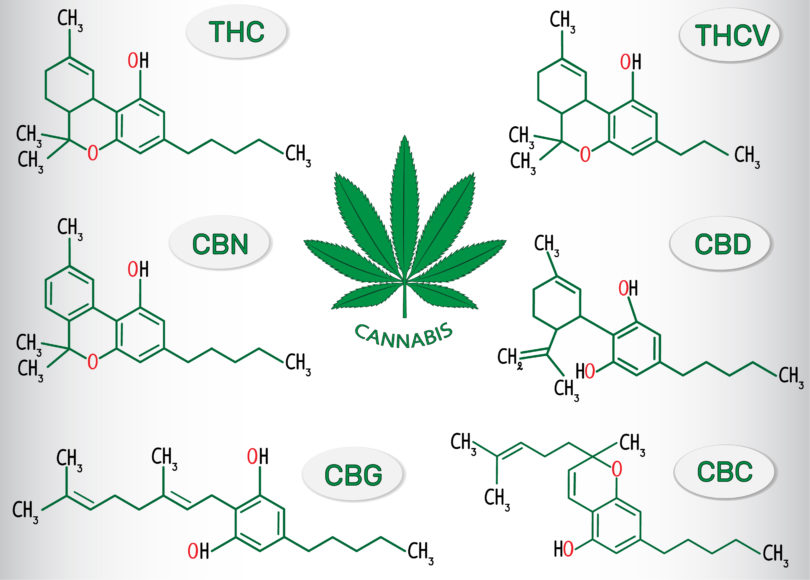THC (Tetrahydrocannabinol) and CBD (Cannabidiol), are extremely popular these days and most are aware of the multitude of benefits each of those cannabinoids has to offer.
But what many people don’t realize is that there are quite a few other cannabinoids being studied as well, all of which have yielded positive results thus far. Today we’ll discuss a few of the main ones that you can expect to see more of in the upcoming years: CBN (Cannabinol), CBG (Cannabigerol), and CBC (Cannabichromene).
CBN
CBN, or cannabinol, doesn’t start out as CBN. As THC ages and comes into contact with oxygen it turns (oxidizes) into CBN. Although CBN is structurally similar to CBD, the benefits are unique and researchers are excited to learn more about this cannabinoid. So far, some of the published studies on CBN include:
So yes, your old, dried out cannabis that you forgot to put in an air-tight jar will be brimming with CBN. But fear not, you may not have to search for improperly-stored buds forever since CBN infused products are already poised to hit the market soon.
CBG
CBG, or cannabigerol, is relatively unknown in the Western medical world but the amount of potential benefits are staggering. What’s interesting about CBG is that it’s the parent cannabinoid to both THC and CBD, meaning that THC and CBD initially start out as CBG. In a typical cannabis bud sample, CBG levels are generally lower than 1 percent. So far, some of the published studies on CBG include:
- Glaucoma
- Inflammatory bowel disease
- Huntington’s disease
- Inhibit the growth of colorectal cancer cells
- Antibacterial
Scientists are eager to study this compound more as the laws develop further in favor of cannabis. Some suppliers are already selling CBG products, but it might still be a while before they become as common as CBD products are.
CBC
Just like other cannabinoids, CBC, or cannabichromene, is also derived from CBG in a complex, three-step process. After exposure to heat or ultraviolet light, CBG/CBGA breaks down into cannabichrome carboxylic acid (CBCA), and then eventually it converts to CBC. So far, some of the published studies include:
- Cancer, breast cancer
- Inflammation
- Positive effect on neural stem/progenitor cell function
- Antidepressant
As with all the other cannabinoids, more studies on the benefits of CBC are definitely warranted, especially since it has the ability to work with other cannabinoids in an entourage effect. At the moment, CBC products are not available on the market but that will hopefully change soon.
Although patients are severely limited in terms of available products and treatments at the moment, hopefully that will change as cannabis legislation continues to evolve and more research surfaces.









